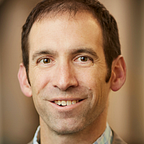Internet Censorship Research Presentation for National CS Ed Week
I visited Chicago Public Schools as part of CS Ed Week to talk about our research on Internet censorship, the urban digital divide, and ethics in computer science.
More than 60 countries around the world perform some form of Internet censorship, according to reports from Freedom on the Net. Those numbers can often be much higher, depending on how censorship is defined, of course.
To ensure that the Internet remains free and open for all people, our research group has been working on technologies to measure and mitigate Internet censorship for the past two decades. Some highlights of our work include a variety of firsts and breakthroughs in both measurement and circumvention of Internet censorship, including:
- Infranet (2002), the first system to use a covert channel to circumvent the nation-based Web censorship.
- Collage (2009), the first system to use user-generated content platforms as drop sites for covert channels.
- Encore (2015), the first system to conduct global, real-time measurements of Web censorship.
- Iris (2018), the first system to detect widespread DNS manipulation.
